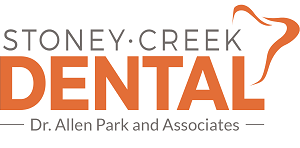
Posted in dental Posted on October 24, 2018
4 Signs You Might have a Cavity
At a cavity’s onset, you may not experience any symptoms.
Decay gets more significant as time goes on, and there are many cavity-warning signs that you should not ignore. If left untreated, a cavity can continue to grow and will possibly affect the deeper layers of a tooth.
Wondering what to look for if you fear you have a cavity? Here are four telltale signs of a cavity that you should not ignore.
1. Tooth Aches
One of the biggest signs of a cavity is the associated tooth pain that appears without any apparent reason.
Mild to sharp tooth pain is a key sign of a cavity and may appear when you bite into food with your damaged tooth or during consumption of something that’s sweet, hot or cold.
2. Tooth Colouring or Holes
Do you see a brown, black or white staining on the surface of your tooth? Staining could merely be natural staining, but noticing discoloration can be indicative of a cavity. Coloured spots are also usually sticky when there is a cavity.
Sometimes, the bacteria on your tooth that’s causing a cavity has created a hole. If you notice a dark spot or hole on your tooth, the cavity has likely gone undetected for a while.
3. Foul Breath
Besides creating cavities, the plaque-causing bacteria can also produce bad breath.
If the foul smell is persistent and regular brushing and flossing does not eliminate it, then this is a sign that the tooth is beginning to decay.
4. Tooth Cracks
There are many reasons for cracks to form in teeth ranging from being in an accident to biting into a hard food. Sometimes, though, they are caused due to cavities. Since plaque-causing bacteria weaken tooth enamel, a tooth becomes more likely to crack and get damaged.
If you notice a crack, then avoid chewing on that side of your mouth until you can see your dentist.
How to Avoid Cavities
If you’re like the majority of the population, you probably don’t enjoy going to the dentist. The best way to avoid going more often than necessary is by practicing excellent oral hygiene habits at home. To prevent getting a cavity, follow these tips:
- Brush and floss your teeth regularly – at least twice a day and ideally, after every meal.
- Use mouthwash to rinse out any leftover residue.
- Schedule regular dental checkups including teeth cleanings and oral exams.
- Avoid sugary, sticky and unhealthy foods that can create more cavity-causing bacteria.
- Drink plenty of water (rather than sugary drinks) to wash out food residue without forming more cavity producing sugar.
- Eat foods that are great for oral health like fresh fruits and vegetables.
Your dental team are the professionals when it comes to spotting cavity detection! If you’re experiencing any abnormal oral health issues, it’s important to schedule an appointment today.
